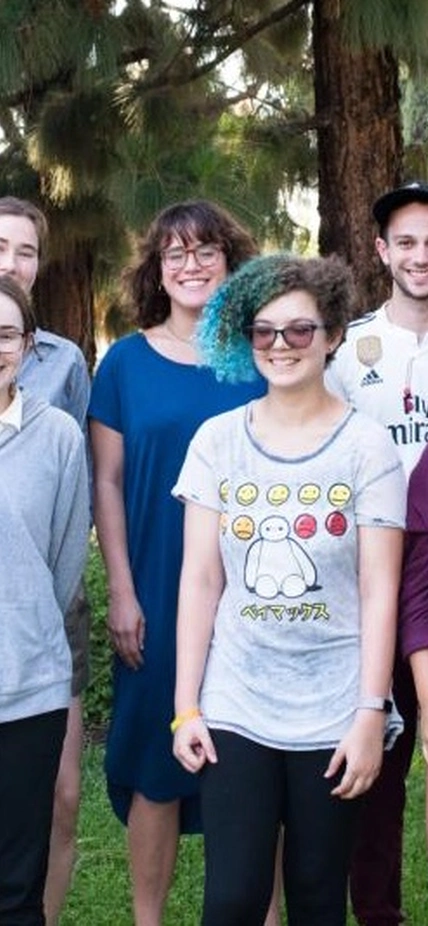Earlier this spring two of The Observatories’ 2018 class summer students—recent Pomona College graduates Sal Fu and Brian Lorenz—were awarded National Science Foundation Graduate Research Fellowships. Both will go on to pursue doctorates in astrophysics at Berkeley.
“Sal and Brian are success stories of the Carnegie summer student program, which was designed to encourage and prepare students to pursue graduate degrees in astronomy and astrophysics or careers in engineering and other technical fields,” said Observatories Director John Mulchaey. “We are very proud of them and excited to follow their progress.”
In 2019, the program was opened for the first time to students from colleges and universities throughout Southern California, as part of an increased emphasis on diversifying the pipeline of students entering the field to be more representative of the community.
This year 16 students are participating in the undergraduate internship program. Each is undertaking an original scientific research project on topics ranging from searching for planets around other stars to studying the explosions of white dwarfs to mapping the spread of heavy elements outside of distant galaxies. All students will present on their investigative results at the end of the summer.
In addition to their investigative endeavors, the students participate in a rigorous series of workshops to build their technical and communication skills. Professional development discussions cover topics such as impostor syndrome and diversity, equity, and inclusion in the scientific community. They also have opportunities to engage with other local scientific organizations, including Mt. Wilson Observatory and the Jet Propulsion Laboratory.
“We aim to have each student end the summer with the confidence to talk about their research interests both with their peers and with professionals in the scientific and engineering communities,” said program director Gwen Rudie, a staff astronomer at the Observatories. “The experience is designed to be both intensive and supportive, positioning students for academic and career success, regardless of where their paths take them in the future.”
The summer student program is possible thanks to financial support from The Rose Hills Foundation and the Ralph M. Parsons Foundation.
